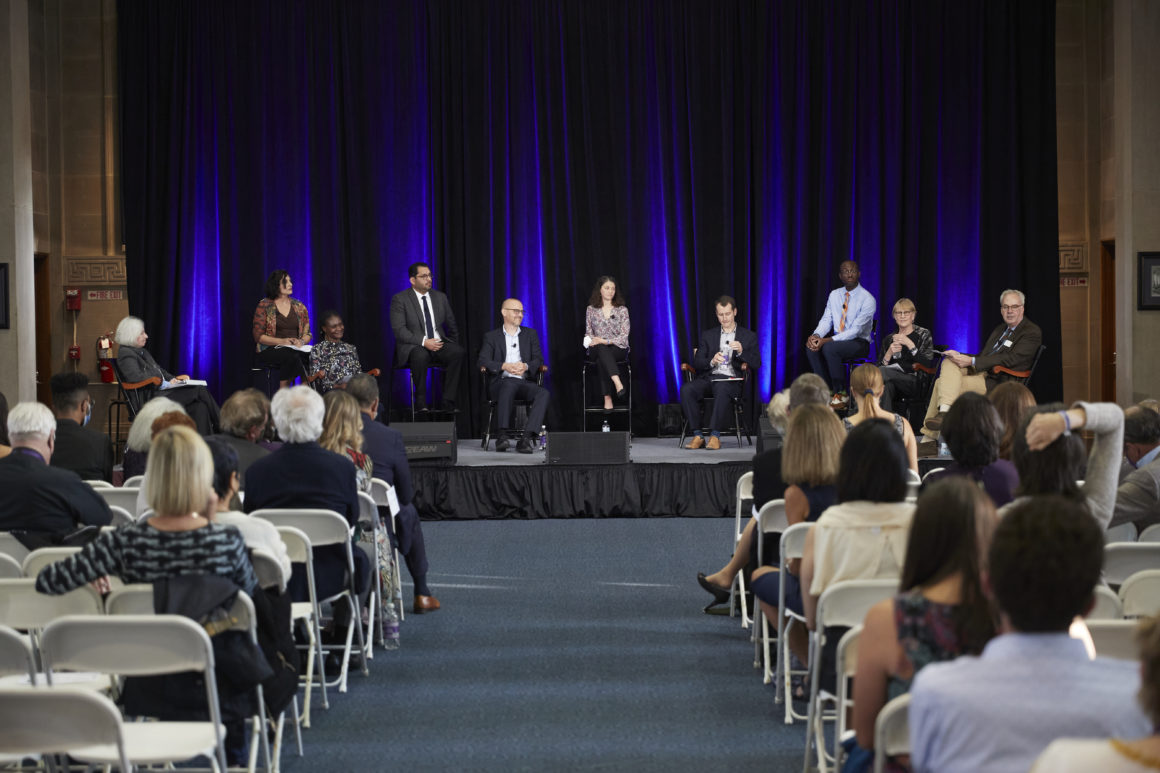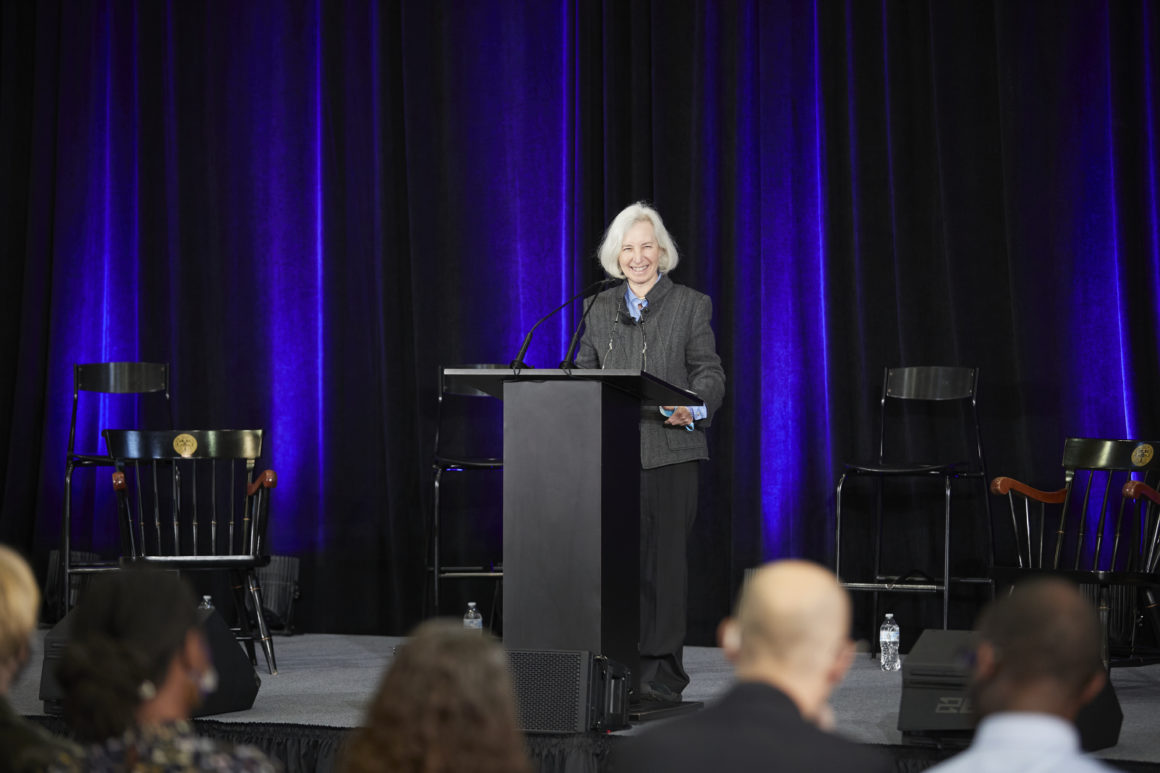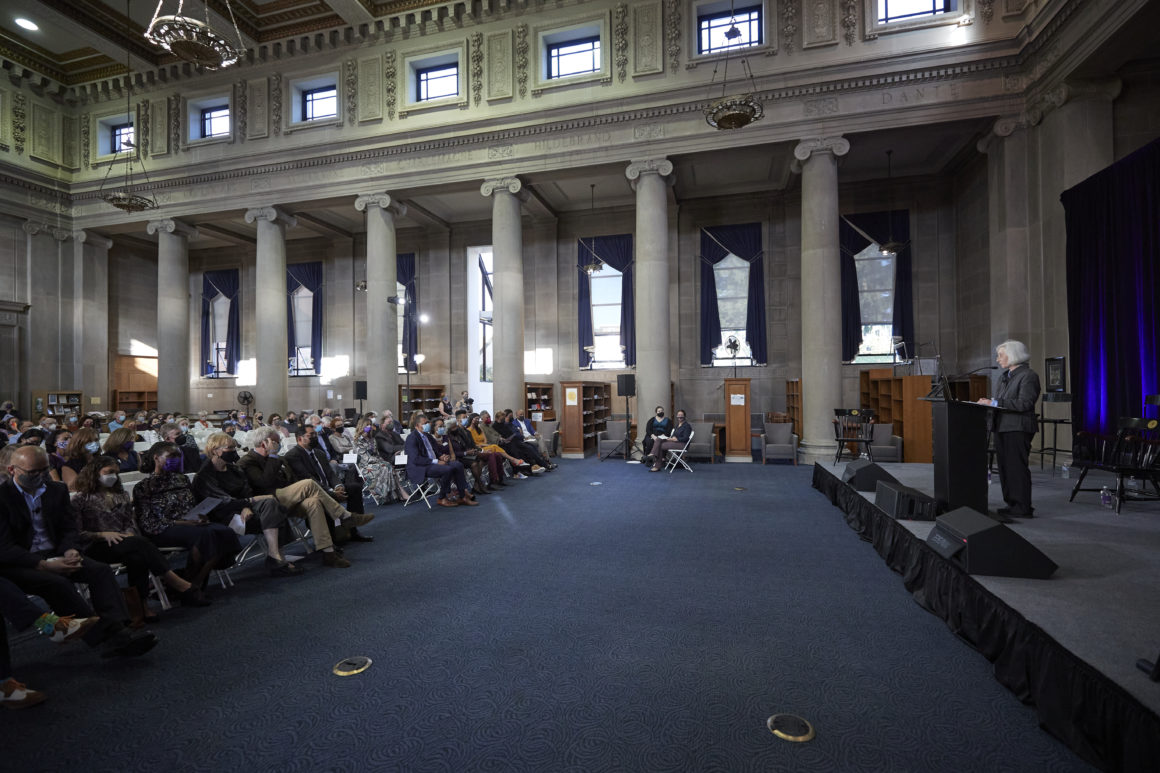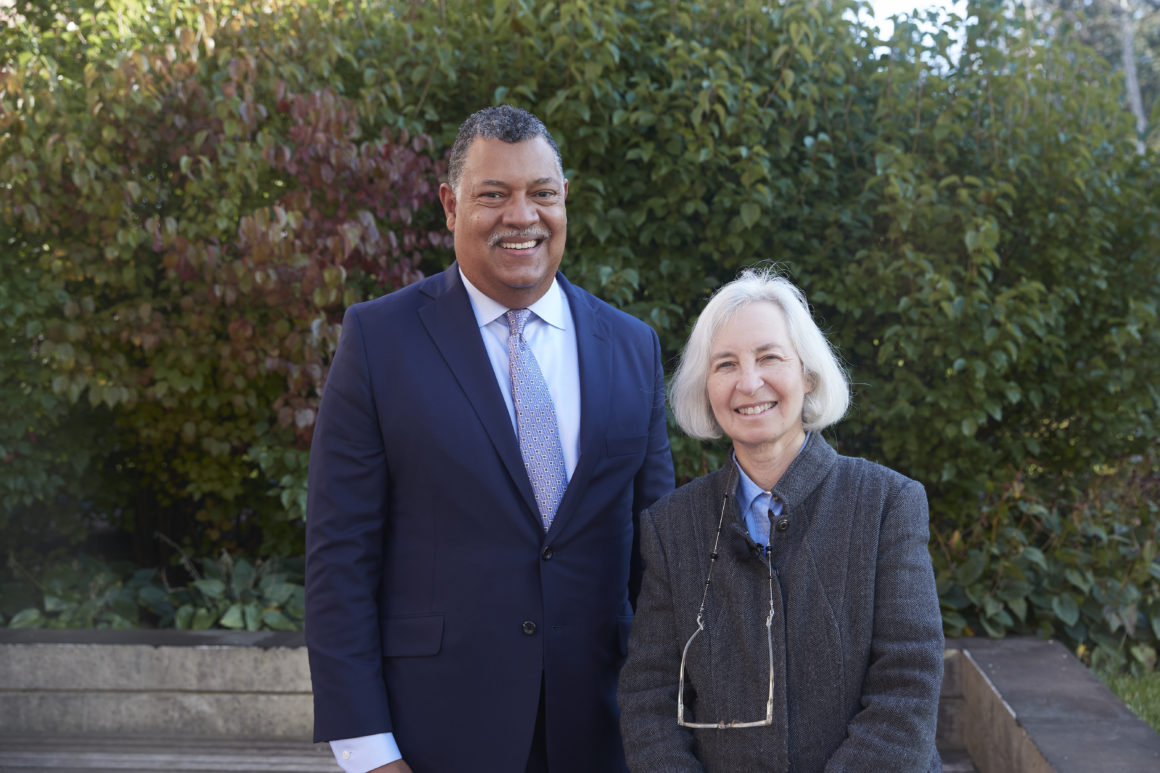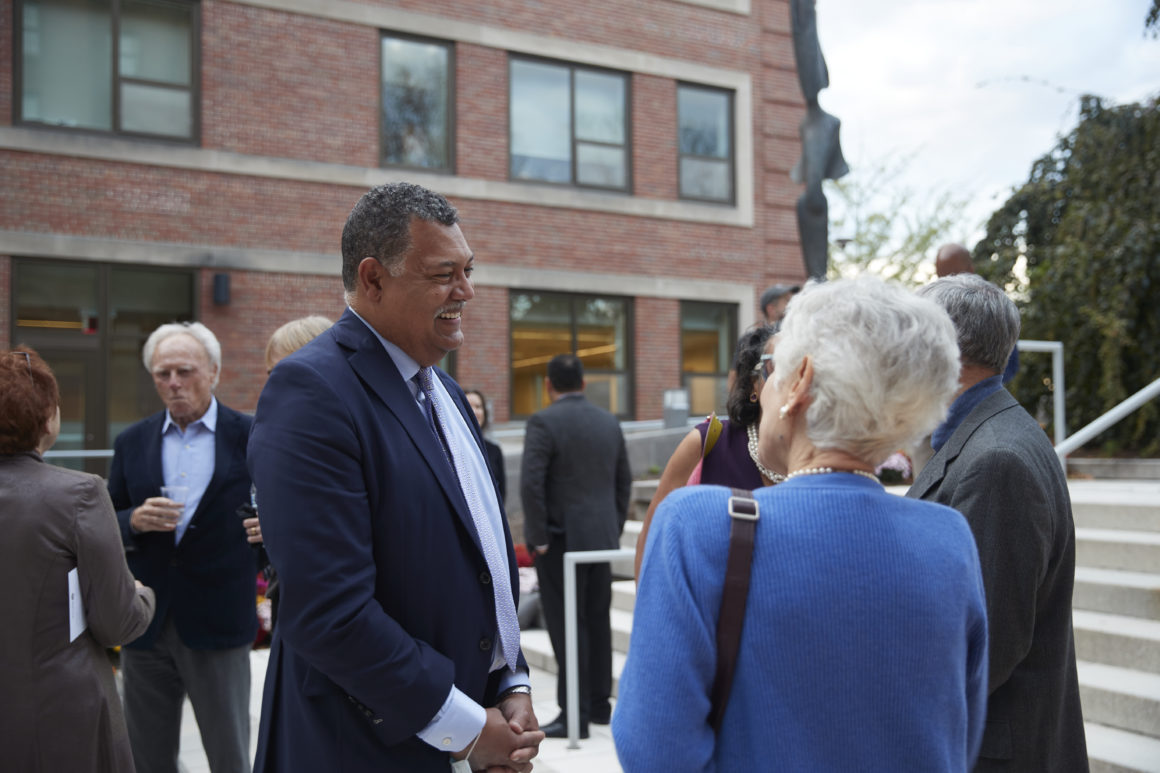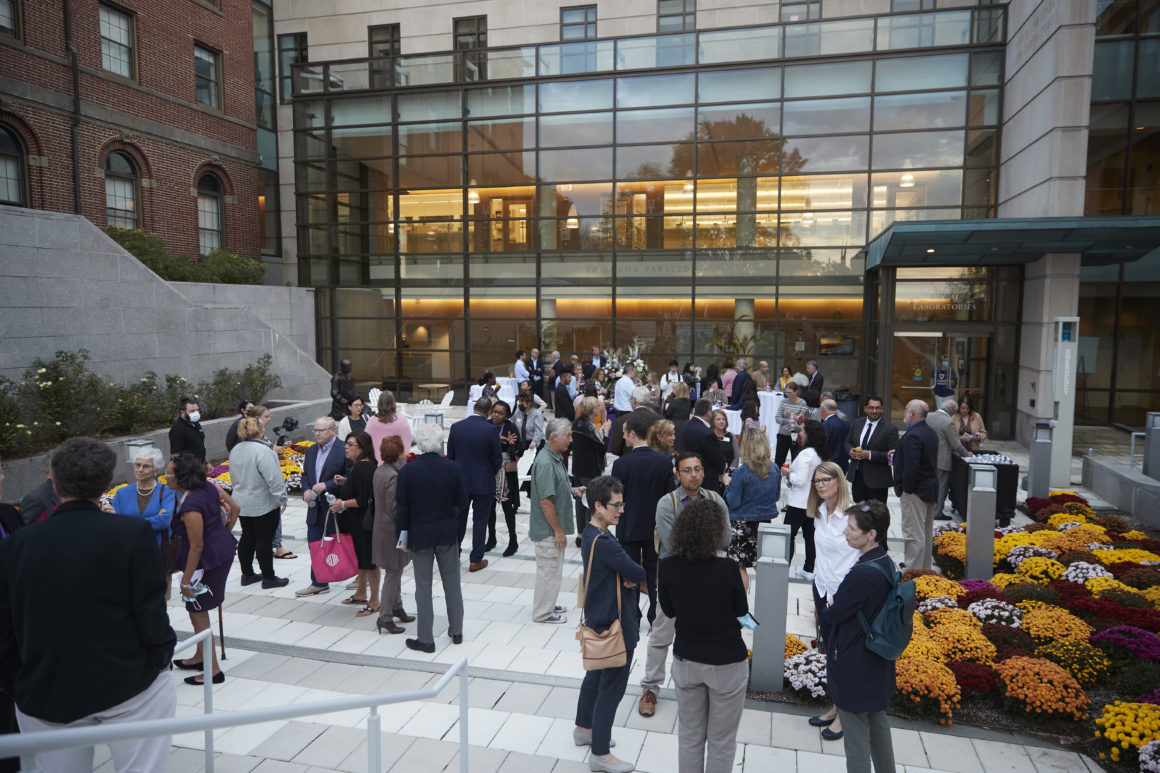These are not good times for democracy, human rights expert, legal scholar and former Dean of Harvard Law School Martha Minow told a Holy Cross audience Thursday, but she said education can help strengthen "the guardrails of democracy."
"Even more important than passing on knowledge content is the work of education preparing and equipping people to listen, to analyze, to debate and to collaborate," Minow said. "That is what this and other great liberal arts colleges do."
Minow spoke at a Holy Cross faculty symposium held in Dinand Library as part of the inauguration of the College's 33rd President, Vincent D. Rougeau. The new president selected the topics of discussion: democratic citizenship and global engagement.
Minnow said the work of liberal arts institutions like Holy Cross is to create spaces for civil debate and discussion, and in doing so, to make true democracy possible. Education must bridge the gap between reality and the ideals of democracy, she said.
"Nothing in documents and institutions of democracy and human rights guarantee the preconditions for their success—notably, respect for the dignity and rights of others…," Minnow said. "The most beautiful Constitution does not by itself cultivate what is needed."
Minow was joined by a group of nine Holy Cross faculty members from across disciplines, who considered how Holy Cross could contribute to the global society in an era of inequality and teetering democracy around the world and here in the U.S.
Associate Professor of Chemistry Andre Isaacs talked about the role an understanding of the world plays even in the laboratory sciences. Some of the greatest contributors to scientific discovery in history have been made by people who studied broadly, he said.
Samuel Morse, inventor of the Morse Code, was a painter, he noted.
"I think a liberal arts education is the best way for us to maximize our impact on the global world," Isaacs said.
Other faculty members agreed, and discussed ways for Holy Cross to build upon programs like Study Abroad and community partnerships in Worcester that help students find a way to be a positive force in the world.
Matthew Eggemeier, associate professor of religious studies, said Holy Cross' job is to help students find the intersection of their talents and passions, and then figure out how to make use of those talents to "do damage to the structures" that create and maintain inequities across the world.
Tsitsi Masvawure professor of practice in health studies in the Center for Interdisciplinary Studies, said Holy Cross professors had responded to the challenge of recent times, creating courses that deal with important topics, such as race and COVID-19, including a pandemic-related course co-taught by faculty from the departments of biology and political science.
"What does Holy Cross owe the world? We owe it to be genuinely curious about the world and the people around us," Masvawure said.
True Democracy Is Made Possible Through Work of Liberal Arts Institutions Like Holy Cross, Says Famed Legal Scholar Martha Minow
Holy Cross faculty symposium on democratic citizenship and global engagement was part of the inauguration festivities for President Vincent D. Rougeau
Read Time
2 Minutes
